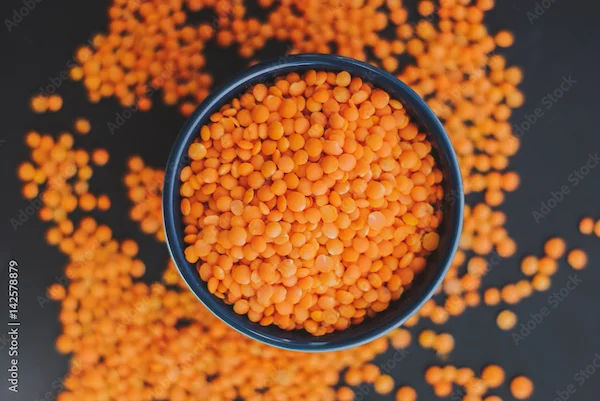Kidney Transplant Patient Can Eat Lentils: Know All About It
Find out whether a kidney transplant patient can eat lentils. Understand the nutritional value, potential risks, and expert dietary advice to ensure safe and healthy post-transplant recovery.

Written by Dr.Sonia Bhatt
Last updated on 5th Jul, 2025

Introduction
If you or a loved one has undergone a kidney transplant, you may wonder about dietary changes, especially whether you can enjoy lentils again. The good news is that lentils can be part of a healthy diet after a kidney transplant, but with some precautions. In this article, we’ll explore the benefits of lentils for kidney transplant patients, how much and how often you can eat them, tips for safely including lentils in your diet and when to consult your doctor.
Are Lentils Safe After a Kidney Transplant?
Yes! Lentils are a great source of plant-based protein, fibre, and essential nutrients. However, since kidney transplant patients need to monitor their protein, potassium, phosphorus, and sodium intake, lentils should be consumed in moderation.
Nutritional Benefits of Lentils
Nutritional benefits of lentils are:
High-quality protein: Helps in muscle repair and recovery.
Fibre: Supports digestion and gut health.
Iron & Folate: Important for energy and blood health.
Low in fat: Heart-friendly for post-transplant care.
However, lentils also contain potassium and phosphorus, which need to be monitored if kidney function is still adjusting.
Consult Top Specialists for Personalised Tips
How Much Lentils Can You Eat After a Transplant?
Your nephrologist or dietitian will guide you based on your kidney function, medications, and overall health. Generally:
Start small: Begin with small portions (½ cup cooked lentils) and observe how your body reacts.
Monitor blood tests: Regular check-ups will help track potassium and phosphorus levels.
Balance with other proteins: Rotate lentils with lean meats, eggs, and dairy (if allowed).
Tips for Including Lentils Safely
Tips for including lentils are:
1. Soak and Cook Well: Soaking lentils reduces potassium content. Drain and rinse before cooking.
2. Pair with Low-Potassium Veggies: Combine lentils with carrots, bell peppers, or green beans.
3. Limit Processed Lentil Products: Avoid canned lentils (high in sodium); opt for dried ones instead.
4. Watch Portion Sizes: Stick to recommended servings to avoid excess potassium.
When Should You Be Cautious?
If your potassium or phosphorus levels are high, your doctor may advise limiting lentils.
If you’re on immunosuppressants, ensure lentils are well-cooked to avoid infections.
If you experience digestive discomfort, reduce intake and consult your dietitian.
Conclusion
Lentils can be a healthy addition to a kidney transplant patient’s diet when eaten mindfully. Always follow your doctor’s advice and get regular blood tests to ensure your kidney function stays stable.
Consult Top Kidney Doctor
Consult Top Specialists for Personalised Tips

Dr. S Bipin Kumar
Nephrologist
13 Years • MBBS, MD General Medicine, DM, Nephrology
Rajamahendravaram
SG KIDNEY CARE, Rajamahendravaram

Dr. Luvdeep Dogra
Nephrologist
10 Years • MBBS, MD, DM (NEPHORLOGY)
Jaipur
Dr Dogras Health Clinic, Jaipur

Dr. Govardhan Gupta
Nephrologist
15 Years • MBBS, DNB General Medicine, DrNB Nephrology
Mumbai
Oscar Superspeciality Hospital, Mumbai

Dr. Siddharth Herur
Nephrologist
4 Years • MBBS, MD General Medicine, DM Nephrology
Kurnool
Medicover hospital and Gurudatta poly clinic, Kurnool

Dr. Anantha Rao
Nephrologist
7 Years • MBBS, DNB (General Medicine), DNB (Nephrology)
Kurnool
Aakash hospital and KIMS hospital, Kurnool
Consult Top Kidney Doctor

Dr. S Bipin Kumar
Nephrologist
13 Years • MBBS, MD General Medicine, DM, Nephrology
Rajamahendravaram
SG KIDNEY CARE, Rajamahendravaram

Dr. Luvdeep Dogra
Nephrologist
10 Years • MBBS, MD, DM (NEPHORLOGY)
Jaipur
Dr Dogras Health Clinic, Jaipur

Dr. Govardhan Gupta
Nephrologist
15 Years • MBBS, DNB General Medicine, DrNB Nephrology
Mumbai
Oscar Superspeciality Hospital, Mumbai

Dr. Siddharth Herur
Nephrologist
4 Years • MBBS, MD General Medicine, DM Nephrology
Kurnool
Medicover hospital and Gurudatta poly clinic, Kurnool

Dr. Anantha Rao
Nephrologist
7 Years • MBBS, DNB (General Medicine), DNB (Nephrology)
Kurnool
Aakash hospital and KIMS hospital, Kurnool
_3.webp)
_0.webp)
_4.webp)
_10.webp)
